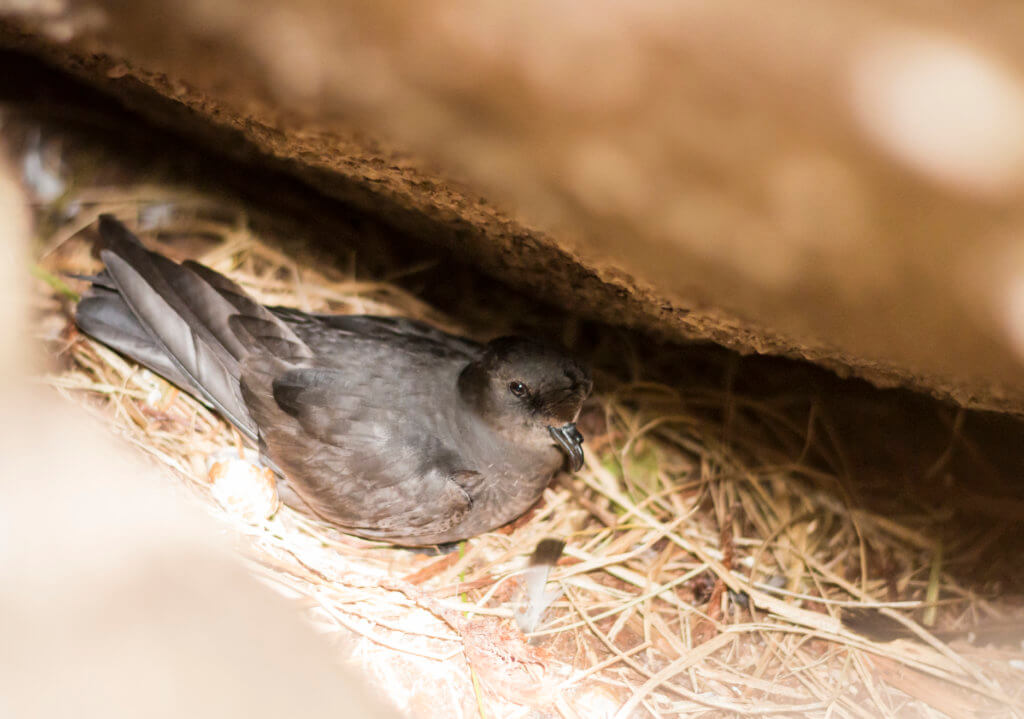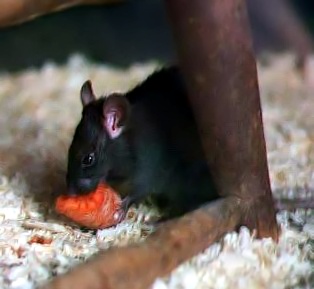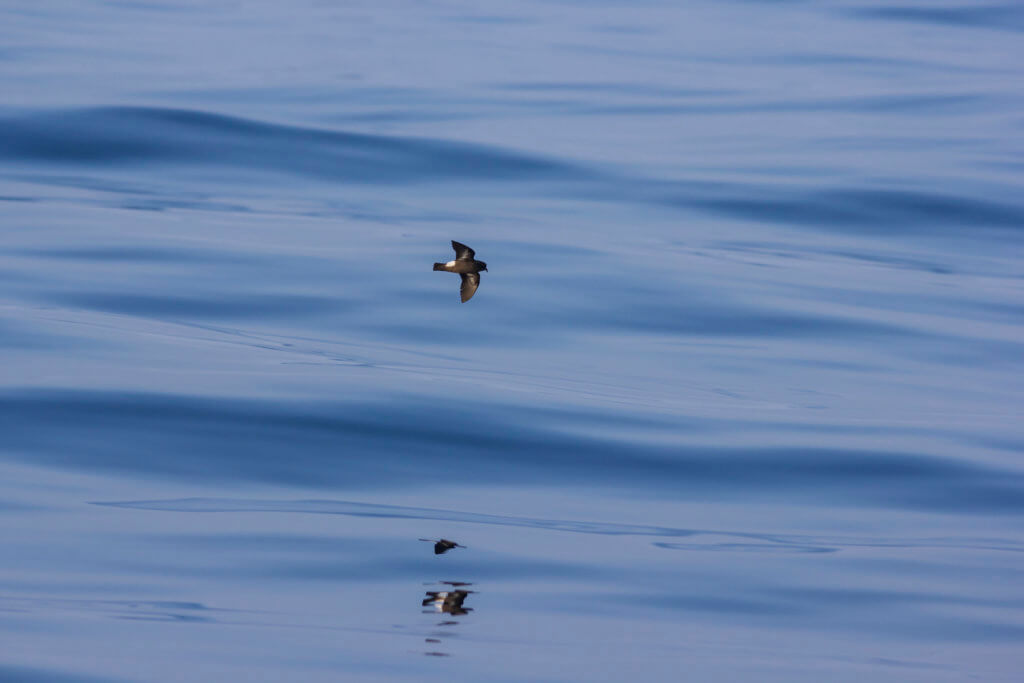
Calling Storm Petrels have been recorded for the very first time on the Shiants this summer, an important milestone for the Shiant Isles Recovery Project, which is working to make the islands suitable for these small seabirds to nest. The characteristic ‘churring’ call was heard from burrows, an encouraging sign that the project is working.

The EU LIFE+ funded partnership project between the RSPB, Scottish Natural Heritage and the Nicolson family, began in 2014. It aims to provide safe breeding grounds for seabirds on this cluster of islands in the Minch, five miles off the coast of Harris. Black Rats on the islands were thought to be limiting the breeding success of Puffins, Razorbills and Guillemots, whilst Storm Petrels and Manx Shearwaters were completely absent.
A rat eradication programme took place in the winter of 2015/16 but it will be March 2018 before the islands can be officially declared free of rats.
This summer, Storm Petrel ‘churrs’ were played at night by boulder scree near the shore – ideal nesting habitat. Calls from Storm Petrels were recorded from three separate sites close to the speaker.
A night vision camera also captured footage of a Storm Petrel displaying nesting behaviour; looking relaxed and heading into a burrow. While it’s possible that birds may have successfully bred on the islands this summer confirming this is difficult due to them only entering and leaving their nest burrows in darkness and would have risked disturbing them.
Dr Charlie Main, Senior Project Manager for the Shiant Isles Recovery Project said: ‘The churring of a storm petrel is very distinctive and we’re delighted that it’s been recorded on the Shiants this summer. While we are still some way off the islands being officially declared rat free these calls indicate that all the biosecurity work we’re doing to keep these islands predator free and make them ideal breeding sites for seabirds is paying off.
It’s even more exciting to think that the birds may have bred on the islands this year, although the risk of disturbing nesting birds meant we were unable to confirm this. These calls are very positive signs for the future and we hope that next year we’ll be able to record even more calls and footage of the birds. The long term aim is to allow a breeding colony of storm petrels to establish at the Shiants.‘.
Dr Andrew Douse, Policy & Advice Manager, Ornithology at Scottish Natural Heritage said: ‘The return of storm petrels as a breeding species on the Shiants is one of the key aims of the project for SNH, so the news of birds recorded calling is very welcome. Storm petrels only occur on islands without rats, which means that they are very vulnerable to the effects that arise from invasive species such as these. The Shiants are an ideal breeding location for storm petrels and hopefully they will go on to become an important stronghold for this species.‘.

Excellent stuff RSPB and special congratulation to those who had to rough it a bit on the Shiants to deliver this project. I can’t help mentioning that at the time this was going on there were certain people in a certain profession/hobby decrying this project saying that we would be losing a part of our wildlife heritage with the black rat’s demise on the Shiants. Given that it is a non native animal, is extremely common in its native range, and that many of the seabirds affected by it there are struggling and we have a very significant proportion of the global population in UK waters this was just ludicrous. However, it does go to show how desperate some people are to try and put the boot in to the RSPB. Imagine if the RSPB had said no ‘we are going to leave the black rats there alone’ what would have happened – they would have been lambasted for not conserving seabirds – including by many of those who criticized it for trying to remove black rats. The RSPB bashing that’s going on is pathetic and repellent.